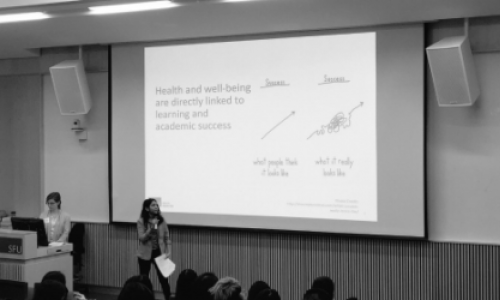
Let's face it: the perfect opportunity to get involved is rarely ever going to come knocking on our door. So why don't we seek out opportunities in our communities and become actively engaged? What's stopping us? Just like the first signs of a storm can be enough for us to stay indoors, fear also takes on the form of a dark cloud and makes us recoil every time we think of getting involved. This can be the fear of having a bad experience, being judged, or simply not being able to adjust to the environment or complete the task that’s asked of us. These are common troubles that people face, but what fun is there if there are no obstacles? Here are a couple of ways you can conquer the hurricane of fear as you prepare yourself to get involved!
Take Baby Steps
Try volunteering and reaching out to the community from an environment that is comfortable to you. For instance, if you are not the type of person to physically go out and help others, try doing something from home such as blog writing or volunteering to coordinate an event over the phone or by email. Getting involved behind the scenes is a great way to network with others indirectly while giving back to the community. You can also start by volunteering with a friend, classmate, relative or mentor. This will give you a chance to get out and explore as well as be around some familiar people.
Don’t Take it Personally
Don’t let one bad experience cloud your perception about getting involved. Often organizers and event managers are under a strict deadline and as a result you may feel pressured as well. Don’t let this affect you since this is not a personal attack on your abilities but it is an outcome of the situation. You are also most likely going to have a couple bad experiences before you get to the good ones. This is part of the cycle of finding out what opportunities appeal to you and what kind of settings you enjoy working in.
Create a Routine
One thing about getting involved is that it really adds structure to your schedule. Once you commit yourself to attending a shift or getting a job done, you plan everything else around it. You make deadlines for yourself and prioritize what you have to do before and after volunteering. Personally, I find that I always get the best grades and have an overall healthier lifestyle in semesters where I volunteer or commit to some extracurricular activities. It helps you meet new people and serves as a stress reliever before getting back to whatever you have to do. The time you normally use to procrastinate can be put to better use by getting involved.
Embrace the Fear
Of course, your fear of interacting with others won’t lessen if you avoid the task, so why not put yourself out there? Every time you get involved and make an impact in your surroundings, it will be become easier and easier for you to repeat the process! Challenge yourself to take on new responsibilities – after all, personal growth occurs when you step outside your comfort zone. Getting out and helping others will help you accept fear as a part of acclimatizing yourself to new things. The feeling of accomplishing a task or helping someone out will definitely have a positive impact on your outlook in getting involved. Sometimes we just have to suppress our fears and make a brave effort to get involved.
Getting involved is nothing to be fearful about – it gives us life lessons whether our experiences have been good or bad. Just like we all once got past the fear of our first day of school, our anxieties around getting involved can be overcome with a little bit of confidence. Don’t let a stormy season hold you back from getting involved – gear up and bid your fears goodbye!
Beyond the Blog
-
Find out how you can get involved at SFU!
-
Step out of your fears and check out different places and resources to volunteer.















